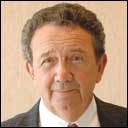Peter F Vaira

July 10, 2012 | The Legal Intelligencer
Do's and Don'ts of Proposed Findings and ConclusionsIn a great many cases, especially where the court sits as a finder of fact, courts may request proposed findings and conclusions from the parties, or the parties themselves may request the court to receive their proposed findings and conclusions. In all these circumstances, it is good advocacy to submit them in the best form. Proposed findings in a nonjury trial should be submitted pursuant to Local Civil Rule 16.1.
By Peter F. Vaira
8 minute read

January 10, 2012 | The Legal Intelligencer
A New Resource for Federal Criminal DiscoveryIn federal civil litigation there is a well-defined procedure for mutual discovery for all parties. Civil discovery has become so extensive and complex that the courts have engaged in efforts to limit the practice, with mixed success. One Eastern District judge recently described the scope of e-discovery in a case before him as "staggering." The American College of Trial Lawyers formed a task force to study the growing demands of civil discovery and in 2008 issued a white paper calling for reforms including a return to fact pleading.
By Peter F. Vaira
7 minute read
July 08, 2008 | The Legal Intelligencer
Questions from Jurors Slowly Gaining AcceptancePermitting jurors to ask questions during trial is a procedure that is slowly gaining acceptance in both state and federal courts, albeit with some significant opposition.
By Peter F. Vaira
9 minute read

July 13, 2010 | The Legal Intelligencer
Juror Note-Taking: Courts Weigh Benefits and ConcernsNote-taking by jurors, similar to permitting jurors to ask questions, once was generally discouraged but it is now becoming widely accepted. The arguments against note-taking are that the best note-takers, or perhaps the only note-taker, may dominate jury deliberations. Some critics assert that jurors will attach too much significance to their notes, merely because there is a writing, and attach too little significance to their independent memory. The opponents argue that the jurors who generally are not experienced in note-taking may accentuate irrelevances in their notes and ignore substantial issues or evidence. Also, note-taking jurors may not pay sufficient attention to the witnesses' on-the-stand demeanor and behavior, which is very important in assessing credibility.
By Peter F. Vaira
8 minute read

July 10, 2007 | Law.com
Assertion of the Work-Product Privilege Can Be a Sticky ProblemThis article is devoted to the not-so-uncommon situation in which a party to a specific litigation seeks the work-product of an attorney representing a party in a different but closely allied litigation.
By Peter F. Vaira
7 minute read

January 22, 2013 | The Legal Intelligencer
Civil Trials by Magistrate Judges — Innovations in Two Pa. DistrictsFederal magistrate judges are playing a growing role in civil litigation in all three districts in Pennsylvania, as well as across the country. With consent of the parties, magistrate judges now conduct full civil trials and enter final judgments. The Western and Middle districts of Pennsylvania have adopted procedures to facilitate the process even more.
By Peter F. Vaira
7 minute read

March 22, 2013 | The Legal Intelligencer
Differing Opinions on the Acceptance of Questions From JurorsThis is a procedure that is slowly gaining acceptance in both state and federal courts, albeit with some significant opposition. Questions from jurors to witnesses during trial is promoted by some federal judges, rejected by others, and cautiously permitted by circuit courts with words of reservation.
By Peter F. Vaira
7 minute read

May 21, 2013 | The Legal Intelligencer
Civil Practitioner's Role in Internal InvestigationThis is practical advice for the civil practitioner whose client organization becomes involved in a grand jury investigation or other official inquiry. This advice applies to an in-house general counsel of a large corporation or an outside practitioner to smaller companies, labor unions or medical practice groups.
By Peter F. Vaira
6 minute read
August 08, 2006 | Law.com
Acting as Local Counsel - Not as Simple as It SoundsServing as local counsel in federal district court for an out-of-district attorney is more complicated than would initially appear. It requires a separate duty to the client, and if a carefully structured regimen is not followed, the result could be problems with the client relationship, Rule 11 charges and loss of fees.
By Peter F. Vaira
9 minute read

March 08, 2011 | The Legal Intelligencer
A Guide to Rule 7.1(g) Motions for ReconsiderationLocal Civil Rule 7.1(g) permits a party to move for reconsideration of any judicial ruling within 14 days after entry of judgment, order, or decree. This includes criminal cases. The grounds for a motion for reconsideration are found in case law.
By Peter F. Vaira
7 minute read
Trending Stories
- 1Commission Confirms Three of Newsom's Appellate Court Picks
- 2Judge Grants Special Counsel's Motion, Dismisses Criminal Case Against Trump Without Prejudice
- 3GEICO, Travelers to Pay NY $11.3M for Cybersecurity Breaches
- 4'Professional Misconduct': Maryland Supreme Court Disbars 86-Year-Old Attorney
- 5Capital Markets Partners Expect IPO Resurgence During Trump Administration
More from ALM
- Legal Speak at General Counsel Conference East 2024: Match Group's Katie Dugan & Herrick's Carol Goodman 1 minute read
- Legal Speak at General Counsel Conference East 2024: Eric Wall, Executive VP, Syllo 1 minute read
- Legal Speak at General Counsel Conference East 2024: Virginia Griffith, Director of Business Development at OutsideGC 1 minute read



